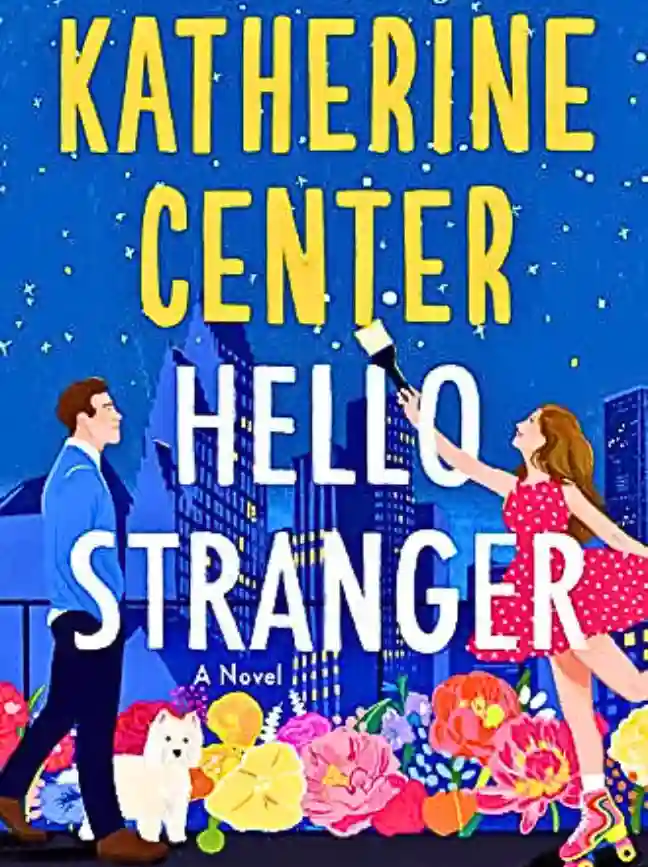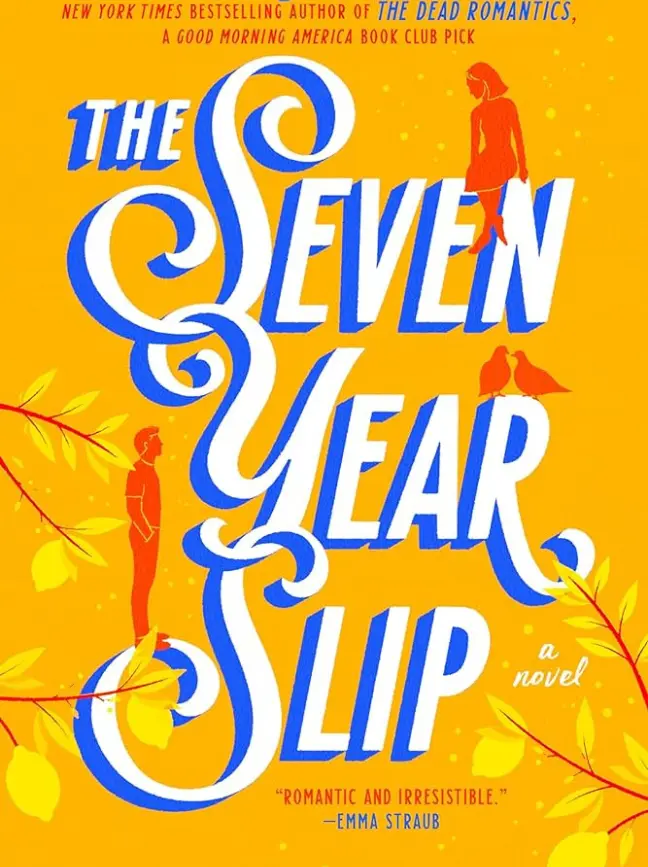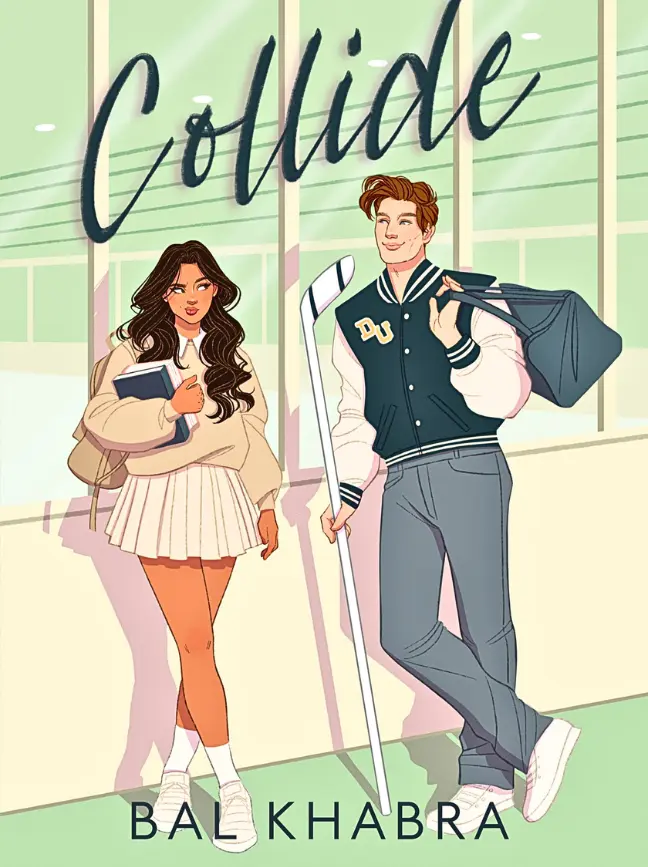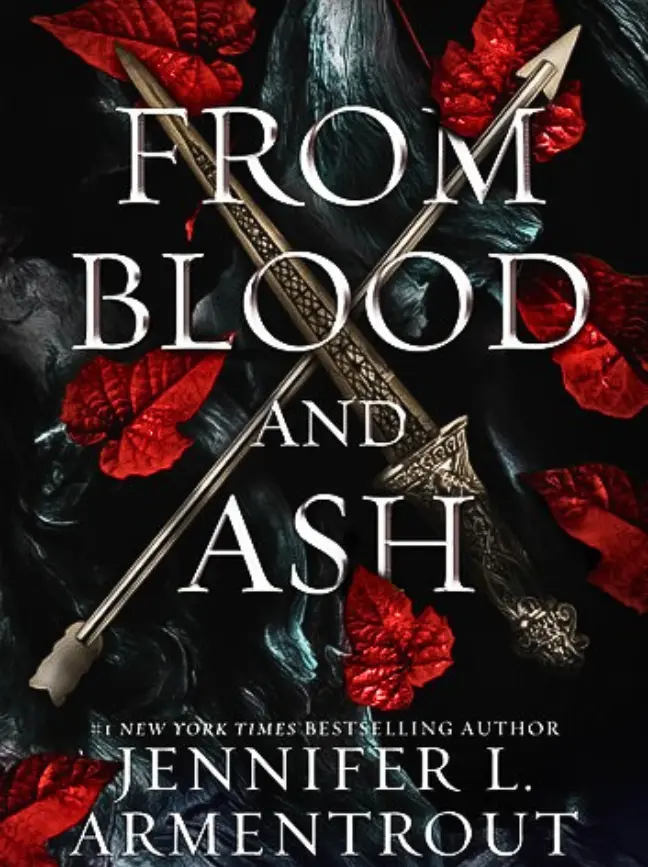Sadie came up with the idea for Both Sides on the night Sam went missing, and she’d been turning it over in her head ever since. It wasn’t much then. A glimmer of a notion of a nothing of a whisper of a figment of an idea. When she’d been retracing the walk she’d taken with him on that promise- filled dawn, she had been struck by how the exact same route could look and feel so different. One minute, Sam was there, the game was completed, and the world was filled with potential. Twelve hours later, Sam was gone, the game was far from her thoughts, and the world was grim and murderous. It is the same world, she thought, but I am different. Or is it a different world, but I am the same? For a moment, she felt dangerously untethered from her body and from reality, and she had to sit down to feel the ground beneath her, before she could continue searching for Sam.
She had had feelings like this before. During her senior year of high school, a formerly close friend had died from an eating disorder. Long before Sadie knew about the eating disorder, Sadie and the friend had sometimes played what they referred to as eating games. The friend would declare it “lettuce day” or “granola bar day” or “canned soup day” or “matzoh day” and she and the friend would try to eat nothing but that item for twenty-four hours. At fourteen, Sadie had thought it was a joke, and the one-item eating game appealed to her organized and obsessive nature. She had not realized that this game meant something else, something ultimately deadly, to the friend. It was Alice who finally told her, “This is screwed up, Sadie. You can’t go a whole day eating lettuce.” The game ended not long after—Sadie’s participation in it at least—and Sadie and the friend drifted apart.
At the friend’s funeral, there was an open casket. When Sadie looked in the coffin, she almost felt as if she were looking at herself. She felt as if she had died, as if she were the one who was supposed to have died, and that somehow, she and the friend had switched places. She was so disturbed, she ran out of the service, apologizing to the friend’s ruined parents on the way out.
On the night Sam went missing, it occurred to Sadie that nothing in life was as solid-state as it appeared. A childish game might be deadly. A friend might disappear. And as much as a person might try to shield herself from it, the possibility for the other outcome was always there. We are all living, at most, half of a life, she thought. There was the life that you lived, which consisted of the choices you made. And then, there was the other life, the one that was the things you hadn’t chosen. And sometimes, this other life felt as palpable as the one you were living. Sometimes, it felt as if you might be walking down Brattle Street, and without warning, you could slip into this other life, like Alice falling down the rabbit hole that led to Wonderland. You would end up a different version of yourself, in some other town. But it wouldn’t be strange like Wonderland, not at all. Because you would have expected all along that it could have turned out that way. You would feel relief, because you had always wondered what that other life would have looked like. And there you were.
But Sadie didn’t say these things to Sam.
“Have you ever heard of Colossal Cave Adventure?” Sadie began. “Sure, but I’ve never played it. It’s old-school, right?”
“It’s ancient school,” she said. “Entirely text, no graphics.” “You’re not saying you want to make a game like that, are you?”
“No,” Sadie said. “Of course not. But there’s this one part of the game that haunts me. You know how you have to go through all these caves?”
“Right, I assumed.”
“So, it’s a huge pain because you have to go back to the cabin at the beginning to access your inventory. In order to solve the problem of going from the caves to the cabin, the programmers invented this special command, Xyzzy.”
“Zizzy?” Sam repeated.
“Yes. It’s spelled X-Y-Z-Z-Y. When you use the Xyzzy command, you can magically switch between two places.”
“Sounds like a cheat.” Sam hated games that made a physical process too easy.
“No,” Sadie said, “it’s genius, actually. It’s the best part of the game, because it acknowledges that the world you’re playing is not the real world. And since you’re not in the real world, you don’t have to move as if you are in the real world. But that’s what I want our game to be like. I want it to be like Xyzzy. Only instead of toggling between two places like in Adventure, the game should toggle between two worlds. Like, in one world, you’re this ordinary person living an ordinary life, and in the other world, you’re the hero. And the game lets you play both sides. I haven’t worked everything out yet. It’s early.”
Sam took off his glasses and set them on the coffee table. “I get it,” he said. “So, the two worlds should be different stylistically, and have different kinds of game mechanics.”
“Yes,” Sadie said. “Exactly. It’s like Oz and Kansas, if Dorothy could switch between them the whole time.”
“One side is like the new Zelda and the graphics are 3D, first person, high quality, the kind of thing that eats up a hard drive. And the other side is simple. Not eighties arcade simple, but a throwback to Sierra-style Kings Quest IV, or what have you. Third-person perspective. Simple enough so that you could possibly play it online.”
“Right,” Sadie said. “What’s the story?”
“Maybe it’s about a girl. She has a bad home life. She’s bullied at school. But in the other world, she’s—”
“Hold on,” Sam said, “I’ll take notes.”
—
The next afternoon, Sam took a cab back to Kennedy Street. He and Sadie had stayed up all night, and he felt tired and content. He’d been away promoting the Ichigo games so much that he hadn’t had time to realize how much he had missed their collaboration. Sadie may have thought Sam had been on a vacation, but promoting their games had been real work. Some of it had been fun—the interviews with the more observant gaming journalists; the Ichigo mascot Opus had made for Game Developers Conference; the children who had begun to dress up like Ichigo and Gomibako; the fans who couldn’t get enough of Sam Masur, the creator who looked just like his creation! Most of promotion had been a grind. It had been telling the same stories over and over again but acting as if he were telling them for the first time. It had been listening to stupid people make stupid observations about Ichigo, their baby, and having to act as if these observations were delightful, trenchant, and original. It had been dragging out his personal traumas for the amusement of the game-buying public. It had been seedy sales conferences. It had been signings in run-down game stores in strip malls. It had been smiling for photographs until he had a headache. It had been endless airplane travel and rental car lines. It had been his foot hurting more and more as the year went on, and Sam trying to ignore it. Sam was practiced at disregarding pain, but two weeks earlier, the foot had begun to bleed. Blood was harder to overlook. He’d been at a promotional event at the FAO Schwarz in New York City. A little kid had tugged at Sam’s sleeve. “Mr. Ichigo, you’re bleeding.” Sam looked down. Indeed, his white tennis shoe had a large bloody spot right in the middle.
“I think it’s paint,” Sam had said, embarrassed.
Back in his hotel room, he’d bandaged himself up, making sure not to get any blood on the hotel carpet, and then he threw his sneakers in the trash.
The point was, someone needed to promote the games, and Sadie had made it clear that she didn’t want to be that person.
What Sam loved best was being alone with Sadie and filling a blank slate with their grand ideas. He loved building a world with her. They had agreed to reconvene in the evening, and he was excited to start work.
He took a shower, but when he got out of the shower, he found that his foot would not stop bleeding. One of the seven metal rods that made up the structure of his foot had gotten out of alignment again and it was, inconveniently, poking through his flesh. The pain was sharp, but bearable. It was the nuisance that bothered him. As he sat on the bathroom floor, trying to make the bleeding stop, he found a second hole in his foot. When he poked his finger in the second hole, he could feel the end of one of the other rods. For a second, he allowed himself to feel scared. That was when Marx returned from Zoe’s.
Marx found Sam on the bathroom floor, the damaged foot exposed. Marx hadn’t seen Sam’s foot for many years, as Sam took great pains to keep it concealed. But seeing it, Marx had no idea how Sam was even ambulatory. Sam’s foot looked deathly—bruised and bloody and twisted and gory. Sam quickly threw a towel over it. “Jesus, Sam. You’re going to the doctor right now,” Marx said.
“I can’t. I’m supposed to meet with Sadie in a couple of hours,” Sam said calmly. “We’re working on a new game. And it’s not like I’m going to bleed to death tonight. Trust me, Marx. I’ve been dealing with this sort of thing for a while. Would you mind getting me some cotton and gauze?”
Marx went into their medicine cabinet, and he handed Sam the supplies.
“It’ll heal in a couple of days. It always does,” Sam said, with a confidence that he did not entirely feel. “Sadie and I are starting to get momentum with the new game.”
After last night’s argument, Marx was encouraged to hear that they were working on something and curious to hear what it was. “Fine,” Marx said. “But I’m making you an appointment for tomorrow.”
Sam’s orthopedist was booked for the next week. By the morning of his appointment, the foot seemed neither better nor worse, though Sam was not walking on it almost at all, and he had, in the last several days, developed a fever. Marx went with Sam to the doctor, both to ensure that he went, and to offer his assistance on the way back.
At the doctor’s office, Marx waited in the reception area and passed the time reading Joan Didion’s White Album, which was not entirely pleasure reading. Zoe was thinking of moving to California. She had begun to find work scoring films, television, and advertising, and she thought she could find more work if she moved out to Los Angeles for a time. The idea appealed to Marx, not just for Zoe, but because he had always been drawn to living in California. He loved the West Coast. He had wanted to go to Stanford, but he hadn’t gotten in. He appreciated Los Angeles, its skinny palm trees and its decaying Spanish-style homes and its occasional flocks of parrots and its smiling people who always wanted something from you. He liked hiking and running, and he wouldn’t have minded living in a place where he could be outdoors most of the year. In terms of work, there were tons of game people on the West Coast, particularly in Los Angeles, and airy, stylish, modern office spaces that cost less than what they paid in Cambridge. After he’d returned from a business trip out there the prior year, Marx had floated the idea of setting up their office in California to Sadie and Sam. They were both from Los Angeles and neither had wanted to return. To return to the city of one’s birth always felt like retreat.
About a half hour after he’d gone in, Sam emerged from the doctor’s office. He was on crutches, his foot was wrapped in thick bandages, and he was carrying a prescription that needed to be filled for a course of antibiotics.
“What did she say?” Marx asked.
Sam shrugged. “Nothing I didn’t already know.”
“So, you’re good?” Marx persisted. He could not get the visual of Sam’s foot out of his mind.
“I’m the same as I’ve always been,” Sam said. “I want to get back to work.”
Marx and Sam went out to the parking lot to wait for a cab. Marx pretended to realize he had left The White Album in the waiting area. “I’ll just be a second,” he said.
Back in the office, he quickly claimed his book and then he went up to the desk to see if Sam’s doctor had a moment to speak with him. He was
Sam’s brother, he said, and he had questions about Sam’s condition. Because Marx was Marx—handsome, charming, polite—the nurse said she would try.
Marx went back to the doctor’s office, and the doctor said she was quite glad to talk to him, because she wasn’t always sure Sam was hearing her. She had cleaned, stitched up the wound, and realigned the foot as much as it was possible to do so. The largest wound on his foot had become infected, so Sam had to be given a course of antibiotics. But the news was not good. The doctor felt an amputation was inevitable.
“He says he can tolerate the pain, though I don’t know how he is. But it isn’t about the pain at this point. His foot is unsustainable. The rods are wearing out what’s left of his bone and his skin is becoming prone to infection and resistant to healing. The only way to stop the damage is if he uses a wheelchair and puts literally no pressure on the foot, which I wouldn’t recommend for an active twenty-four-year-old. He will constantly be back here unless he takes serious action. The sooner, the better. He doesn’t want to end up with sepsis, which could lead to a riskier emergency amputation. He’s young and he’s in good health—if it were my brother, I’d tell him it’s time.”
The cab was waiting for them when Marx got back out to the curb. “That took a while,” Sam remarked.
“Yes.”
“Well,” Sam said. “I can tell by your face and your dodgy timeline that something happened in there. What is it?”
“I ran into your doctor when I was in the lobby. She thought I was your brother. She seems”—Marx searched for the right word—“concerned.”
Sam tightened his grip on his crutches. “She had no right to talk to you.
My medical situation is my private business.”
Marx knew that invoking friendship and personal history was never useful with Sam. “Sam, it arguably is my business. We’re partners, and if you’re going to need major surgery, Sadie and I need to be able to plan.”
“People have been telling me that I have to do something about this foot for years. I get it. I get that it’s probably close to time, but I need to
make the new game with Sadie first.”
“Sam! How long is that going to take? You haven’t even started. I’m your producer and I don’t know anything about it. A week ago, you two were still arguing about whether to make Ichigo III.”
“We’ve resolved that now.”
“This is madness. If you’re scared, that would be entirely understandable. That would be—”
“I’m not scared. I simply can’t make the game and be recovering from having an amputation at the same time,” Sam said imperiously. “I don’t have time for surgery and physical therapy and getting a prosthetic that fits. It’s winter in Massachusetts, Marx. It’s hard enough for me to get around as it is.”
Marx and Sam didn’t speak the rest of the way home.
“And I’d appreciate if you didn’t mention any of this to Sadie,” Sam said when the cab arrived at Kennedy Street.
Marx nodded. He got out first, so he could help Sam out of the cab.
—
Marx went to Zoe’s apartment that night and he relayed what had happened with Sam. Zoe was sitting in the living room, cross-legged on an ikat- patterned cushion and playing the pan flute, which she was currently learning. Her Titian hair fell past her breasts and she wore only underwear. Zoe always kept the heat turned up in her apartment so that she could wear as little clothing as possible. She liked feeling the vibrations of her instruments, she said. She liked feeling the vibrations of the earth underneath her and the air around her. There was a secret music, she claimed, that she could only hear when there was nothing between her and the universe. (By “nothing,” she meant “clothing.”) Zoe joked—or maybe it wasn’t a joke—that her first sexual experience had been with her cello. Before she’d become a composer, she’d been a child cello prodigy, and she’d loved nothing so much as going outside, stripping, and playing by herself. Her mother had once discovered her this way behind their house
and had made Zoe see a therapist. (The therapist determined that Zoe had the healthiest body image of any teenage girl he’d ever met.) At this point in their relationship, Marx was so accustomed to Zoe’s naked body that it didn’t even feel sexual anymore. They still had frequent and playful sex, but Zoe’s nudity was not an invitation to it.
“The solution is completely obvious,” Zoe said. “You have to convince Sam and Sadie to go to California with us. The winter won’t be a problem in California. Everyone drives out there, so Sam won’t have to walk as much, and his recovery will be easier.”
“I’m not sure I’m going to California yet,” Marx said.
“Oh, you are,” Zoe said. “I know it. Marx, look at you. You were meant for California. Unfair is between games, and Sam needs time off, so it’s the perfect time to move your office to California, which you’ve told me for years is what you want to do. Sam will have plenty of time to have the surgery and recover, while you and Sadie set up the office and start hiring.” Zoe clapped her hands together. “Done.”
“Sadie might not want to go,” Marx said. “Dov is here.”
Zoe rolled her eyes. “Marx, Sadie is dying to have an excuse to leave Dov.”
“She loves Dov,” Marx said.
“She hates Dov. He will never get divorced. We all know this,” Zoe said.
Marx laughed at Zoe’s certainty—he had known Sadie for three years, half as long as he’d known Sam, and he still found her to be a mystery. “So how do I convince Sam?” Marx asked.
“Marx, my love, you are so innocent. You don’t have to convince anyone. You tell Sadie that Sam needs to go to California—his foot is rotting; he needs to have the surgery and he won’t do it in Massachusetts. You tell Sam that Sadie needs to go—she needs to find a way to break with Dov. Those two are thick as thieves; they’ll do anything for each other.”
Marx kissed Zoe on the lips. She tasted like cinnamon tea and mandarin oranges, and he wanted to have sex with her, but he could tell she was still in the middle of work. “You’re being very Lady Macbeth tonight.
Are you saying all these things because you want me to go to California with you?”
“Well, yes, partially. But it’s also the absolute correct course of action,” Zoe said.
—
It went almost exactly as Zoe said it would. He went to Sadie first and, ignoring Sam’s prohibition against it, conveyed the information about Sam’s disturbingly decrepit foot. Sadie said that she had not seen herself in California, but she readily agreed that it made sense for Sam and for the company. It was evident to her—as it would have been to anyone close to Sam—that something needed to be done about Sam’s health, and all of that would be easier for him in California. “To tell you the truth,” Sadie said, “I’m a little tired of winter myself.”
When Marx went to Sam, he diverged from Zoe’s advice. He began with the argument about the state-of-the-art office they could build in L.A., and the inspiring L.A. gaming scene, and he did not mention anything about Sadie. Sam had told Marx about Both Sides—Marx loved the idea, but then, no one truly cared about Marx’s opinion of what they should do next. However, Both Sides, and its ambitious scale, fed perfectly into Marx’s argument. They would require a larger office to accommodate the staff they would need to make it. Sam still wasn’t convinced. “It’ll take time to move and to hire decent people and to set up the office,” Sam argued.
“Sadie and I can do that,” Marx said. “And that would leave you time to have the surgery, no?”
Sam shook his head. “Sadie’s willing to do this? She’s willing to leave Dov?”
“She is,” Marx said. “I think she wants to even, but she doesn’t know how. It might help her if she had a reason to go.”
“I’ll do it,” he said. “For Sadie.”
Zoe was not the only one who had observed that all was not right between Sadie and Dov.
In addition to the divorce that never happened, Sadie sometimes showed up to the office with light bruising on her face and limbs, rope burns, small scratches; on one occasion, a sprained wrist. A series of minor injuries, nothing that serious or even noticeable, but enough so that Marx had once seen fit to ask her what the story was.
Marx and Sadie had gone to Austin by themselves to meet with the Opus team. The weather in Austin was murderously hot, so when they got back to their hotel, the two of them had changed into swimsuits and gone to the pool. Marx couldn’t help but notice the number of bruises on Sadie’s legs and arms, and later that night when they were sitting in the hotel bar, he, very gently, asked her about them. They were having hard, grown-up drinks—an old-fashioned for Marx and a whiskey sour for Sadie. It was kind of a joke, a play on being sad, middle-aged adults on a business trip. Marx lightly touched the welt on her wrist. “Are you okay?” he asked.
Sadie had laughed in that low breathy way she had when she was embarrassed. She covered the wrist with her other hand. Marx thought she wasn’t going to tell him anything, but then she did.
“It’s a game we like to play,” she said. “A game?” Marx said.
“Some bondage stuff,” she said. “He never takes it too far. He always has my consent.”
“Do you like it?” he asked.
Sadie considered the question. She took another swig of her drink. “Sometimes.” She smiled her crooked smile, and there was an apologetic look in her eyes, as if she knew she had betrayed Dov by admitting that she only sometimes enjoyed sex with him. “But he’s great. I mean, he’s been really great for me,” she said. “And for all of us, too.”








